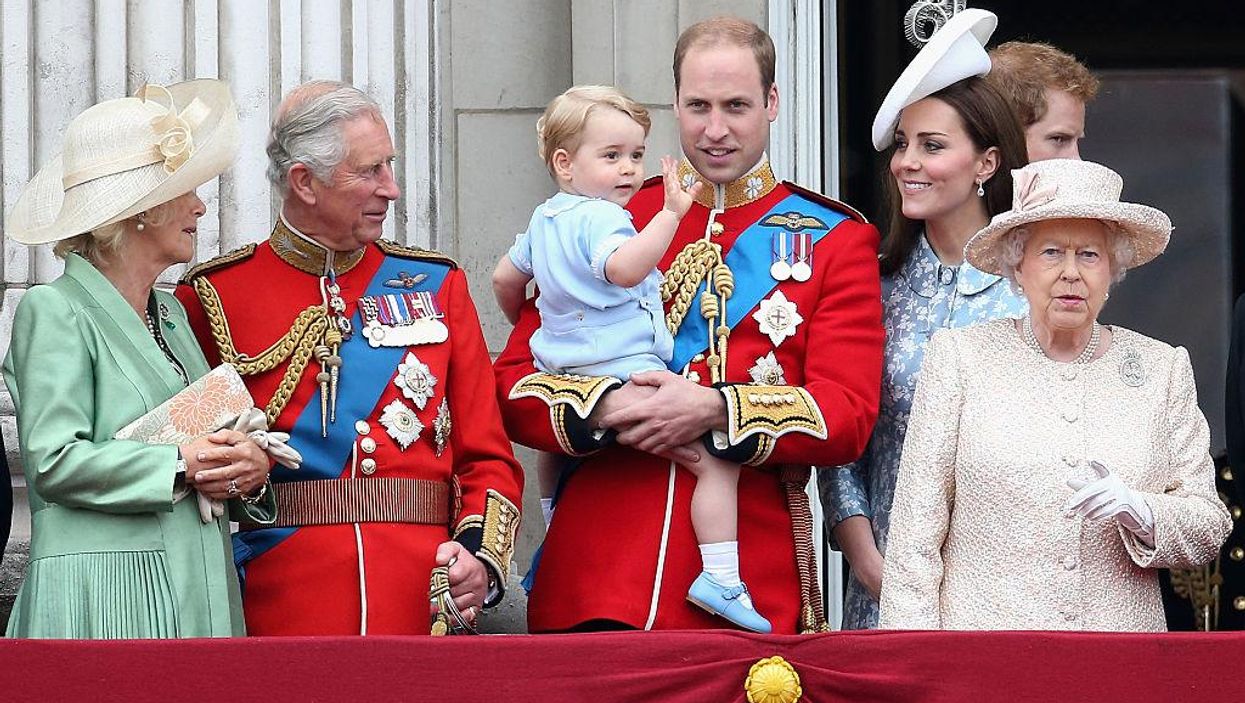News
Joe Vesey-Byrne
Nov 19, 2016

Picture:
Chris Jackson/Getty Images
Buckingham Palace is getting a 'necessary' refurbishment costing millions of pounds.
The announcement occured on the same day that MPs debated reducing the number of elected representatives as a 'cost saving' measure.
On Friday it was announced that the London residence of the Royal Family is to be repaired, at a predicted cost of £369 million.
That is equivalent to a 66 per cent pay rise for the monarchy. An average pay rise for UK workers in 2017 will be as little as 2.5 per cent, according analysis by management consultants at Hay Group.
The refurbishment costs will cover the replacement or repair of the following:
- 10 miles of water pipes.
- 20 miles of lead and cast iron works.
- 20 miles of skirting board.
- 33-year-old boilers.
- 100 miles of electrical cable.
- 6,500 plug sockets.
Money for the monarchy used to come from the 'civil list'. Persons on this list were inviduals who were paid by the government.
From 2013 the civil list was scrapped, and Her Majesty has since been renumerated for her duties as the head of state by a 'Sovereign Support Grant' which was based on a share of 15 per cent of the profits from the Crown Estate.
The Crown Estate manages the assets of the monarchy. These are not personally owned by the reigning Queen or King, and cannot be sold.
The trustees of the Crown Estate, Theresa May, Phillip Hammond, and the Keeper of the Privy Purse recommended that 25 per cent of the Crown Estate's revenue be put into the Sovereign Support Grant for the 10 years during which the repairs will take place.
Defending the decision, Tony Johnstone-Burt, master of the Queen’s household, told the Guardian that the money would mean there was a 'palace fit for purpose' until 2067.
When work is completed in 2027, it will have been a bargain £9,225,000 per year until further repairs are deemed 'necessary'.
The Queen, now aged 90, will also be spending more of the year at her castles in Balmoral and Windsor, and will significantly reduce the time spent at Buckingham Palace.
Criticising the decision to hand over this much money, the Scottish National Party MP Hannah Bardell said:
The irony is just today the Tory government was debating whether to cut the number of elected representatives in a cost-saving measure. While steps should be taken to maintain and restore such buildings, I’m sure many will find it hard to grasp the millions available to restore Buckingham Palace when Tory cuts are leaving the poorest in our society to suffer.
Bardell was referring to the private members bill put forward by the Labour MP Pat Glass which called for the number of MPs to remain at 650.
The measure was a response to the government's plans to reduce the number to 600 as a cost saving measure, and in order to make the size of constituencies across the country more equal.
This comes at a time when the House of Commons is also considering billions of pounds of refurbishment of the Palace of Westminster.
Helen Goodman, a Labour MP on the Treasury select committee, said:
The government has stopped providing grants for the building of social housing to rent and yet can give a straightforward grant to Buckingham Palace.
In figures collected by the charity, Crisis, 3,569 people in England were rough sleeping on any given night.
Buckingham Palace has not been refurbished on this scale since it was damaged during World War Two.
In 2009 a chunk of masonry fell away from the building, almost killing a police officer.
While these safety concerns are paramount, and the need to keep a tourist attraction well maintained is evident, the fact that Buckingham Palace is a building which the majority of people see from behind a black iron fence begs the question of whether or not a private home and administrative centre should be funded from the Crown Estate, which for the most part is generated from landholdings dating back to the Domesday Book.
All of the Crown Estate's profits go to the Treasury to finance public spending. The extra 10 per cent of their revenue going to Buckingham Palace in the next decade will as such be unavailable for other purposes.
One might point out that nations such as France, or Germany, or Russia, don't have much trouble drumming up visitors to the palaces of their former monarchies...
More: Woman pays for dinner of loud homophobic family - but not for the reason you might think
More: 10,000 words have been ranked according to how 'Trumpy' they are
Top 100
The Conversation (0)













